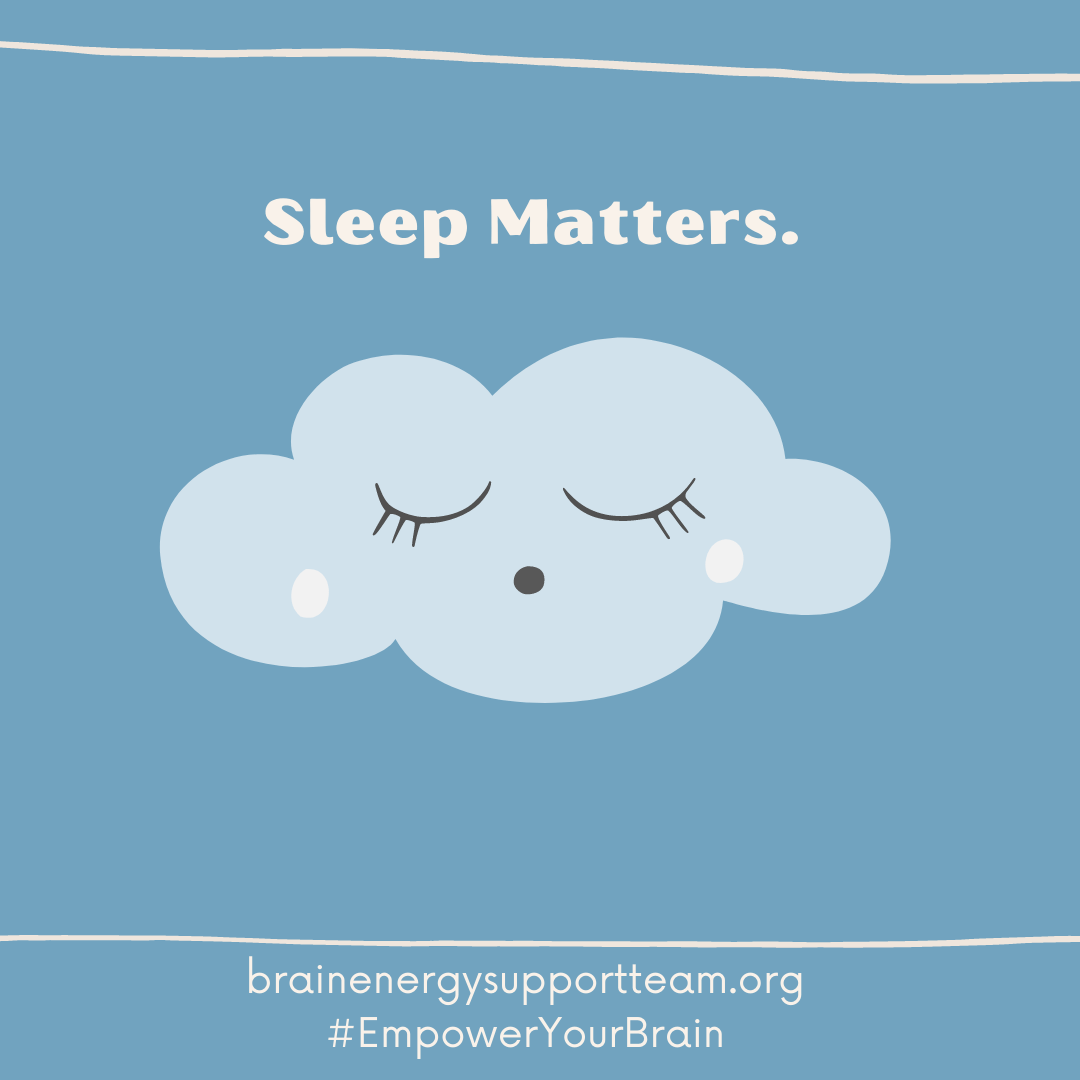Sleep is an essential for everyone.
Here’s why sleep is important:
- Sleep allows your body and mind to recharge and refresh.
- Sleep allows your body to remain healthy.
- Sleep helps prevent disease.
Without enough sleep, our brains cannot function properly.
That’s why the best quality of sleep possible is critical for those with brain injury.
Studies have shown that sleep disturbances occur in 30–70% of individuals with traumatic brain injury (TBI). Sleep disturbances include insomnia, fatigue, sleepiness and more.
What can you do to have a better night’s sleep?
Here are simple tips to start.
- Limit blue light/electronic devices before bedtime. Electronic devices (smart phones, televisions) emit blue light that tricks our brains to think it’s daytime. Experts recommend limiting your time on your devices two hours before your sleep.
- Don’t consume caffeine late in the day.
- Use care if you nap during the day. Naps may interfere with sleep at night. If you must nap, try to keep your naps to thirty minutes or less.
- Try to go to be bed and wake up at the same times as much as possible.
- Avoid alcohol.
- Don’t eat too late in the evening.
- Make your sleeping environment a priority. Try to minimize external noise, light, and artificial lights from devices. Adjust the temperature to your comfort. Find the mattress, pillows, and bedding that works best for you.
- Learn about relaxation tips that work for you. The BEST blog and our Calm Mind Course have tips and strategies that you can use.
- Take a relaxing shower or bath before sleep.
- Try to get movement and/or exercise during the day to help you sleep better at night (note: avoid exercise right before bedtime though).
- If you are still having sleep challenges: consult with a medical professional to rule out sleep disorders or other medical conditions that could be disrupting your sleep.
 For more resources, click on the links below:
For more resources, click on the links below:
Tips for a good night’s sleep from Headway UK.
Check out the BEST Calm Mind Course to help with relaxation and calm.
A good article on getting a good sleep during COVID-19 stressors.
A good article on how food and nutrition impacts sleep.
Have a sleep tips to share? Let us know! We’d love to hear from you.
